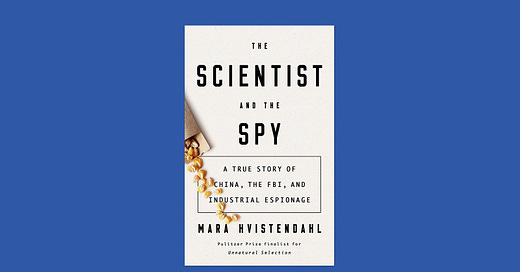Welcome to the second newsletter from Deca, a collective of eleven award-winning foreign correspondents.
“In an era of electronic rumor mills, we remain dedicated to the idea of connecting writers and readers directly,” we wrote in our first newsletter — more than a year ago. That's still true.
Other things aren’t. Here’s an update:
In the last hours of last year we dissolved Deca Stories, LLC, the project's business identity. If you were one of our early supporters, we’d like to say thank you.
Deca was a small, ambitious experiment, founded at a time when narrative stories about the world had grown more difficult to find, read — and create. Your interest in Deca’s work pushed back against a cynical trend, and had an impact far beyond what many thought possible.
We never paid ourselves salaries — everything Deca earned went to produce more stories — and we had a little over $2,000 in the bank by the end. We donated the remaining money to the Pulitzer Center on Crisis Reporting and the Matthew Power Literary Reporting Award, two organizations that fund the kind of narrative journalism Deca has pursued.
We’d figured to draw things to a close then. Except (again) we just…didn’t. We still wanted to work together, and we saw some of our audience stirring. Our neglected social media feeds saw a bit of traffic late last year, and we got a few letters from readers.
In that spirit, we’re reviving this newsletter. To start, every three months, we’ll send you a curated list of what Deca authors are reading and writing, and some resources for non-fiction writers.
We’d also like to hear from you. If you’ve read a work of narrative reporting recently that you’d like to share with Deca’s community, respond to this email with a link. We’ll include the best suggestions in the next newsletter. Our website, www.decastories.com, remains live, too, and includes links to Deca members’ latest work.
Thanks. It’s good to be back in touch. Now here’s some news and our first list of great reads for 2020.
—

Mara Hvistendahl’s latest book, The Scientist and the Spy, debuted to rave reviews today. Read an excerpt in Vanity Fair.
In September 2011, sheriff’s deputies in Iowa encountered three ethnic Chinese men near a field where a farmer was growing corn seed under contract with Monsanto. What began as a simple trespassing inquiry mushroomed into a two-year FBI operation in which investigators bugged the men’s rental cars, used a warrant intended for foreign terrorists and spies, and flew surveillance planes over corn country—all in the name of protecting trade secrets of corporate giants Monsanto and DuPont Pioneer. The Scientist and the Spy recounts this unusually far-reaching investigation, which pitted a veteran FBI special agent tasked with fighting a national-security priority against Florida resident Robert Mo, who after his academic career foundered took a questionable job with the Chinese agricultural company DBN in order to support his family. As the investigation took a series of unexpected twists and turns, the FBI agent was forced to reckon with an unexpected outcome, while Mo ended up questioning everything he valued.
“The Scientist and the Spy is as compulsively readable as espionage thriller and as darkly troubling as any morality tale.” —Deborah Blum, author of The Poison Squad: One Chemist's Single-Minded Quest for Food Safety at the Turn of the Twentieth Century
“A riveting tale for our times.” —Rana Mitter, author of Modern China: A Very Short Introduction
“The Scientist and the Spy vividly illustrates that things happening in China today can be stranger and more spellbinding than in a thriller.” —Qiu Xiaolong, author of Death of a Red Heroine
“Mara Hvistendahl is the most fluid of writers and the deepest of reporters.” —Peter Bergen, author of Manhunt: The Ten-Year Search for Bin Laden from 9/11 to Abbottabad
“You will learn more about China from this thrilling, real-life drama than you will from a whole stack of China-related books by lesser talents.” —Evan Osnos, author of Age of Ambition: Chasing Fortune, Truth, and Faith in the New China
“Not since Alfred Hitchcock’s North by Northwest has a cornfield produced so much excitement.” — Booklist (starred review)
—
What we’re reading besides Mara’s book:
Sala Negra, the literary reporting page at El Salvador’s El Faro.*
Ellen Barry on the Jungle Prince of Delhi. (The New York Times Magazine)
Pamela Colloff on the snitch who could send a man to his death. (ProPublica)
The Intercept on Qassim Suleimani’s influence in Iraq.
Tim Ball on whether the U.S. could finally take on gun violence. (Politico)
Thaiza Pauluze on Carnivale lyrics under Bolsonaro. (Folha)
Claire McEachern on escaping a wildfire. (L.A. Review of Books)
Many, many PEN Literary Award Finalists. (PEN)
Fintan O’Toole on Boris Johnson’s novel 72 Virgins, yes really. (NYRB)
*text in Spanish. Or not!
—
Opportunities for Writers:
Submit your project for the Matthew Power Literary Reporting Award (by 2/19!)
Apply for a grant from the Pulitzer Center.
Win the Oakes Award for environmental journalism.
Get the Logan Fellowship at the Carey Institute.
—
Human Resources Department:

Sonia Faleiro’s new book, The Good Girls: Love and Death in a Village in India, will come out in January of next year. In the meantime, read her exposé on India’s greatest female wrestler in The Economist 1843.
In addition to being a 2020 Nieman fellow, Rania Abouzeid is soon to publish Sisters of the War, a young adult adaptation of her 2018 book No Turning Back: Life, Loss, and Hope in Wartime Syria.
Elizabeth Dickinson is in Bogotá, Colombia, writing for the International Crisis Group as a senior analyst on Colombia. Her recent work includes this report on Middle Eastern influence in the Horn of Africa.
Since the summer of 2016, Stephan Faris has been Enterprise Editor of Politico’s European edition, and now lives in Brussels.
McKenzie Funk begins a fellowship with the Logan Nonfiction Program next month. His latest story, based on reporting for his upcoming book, investigates U.S. Immigration and Customs Enforcement’s use of big data.
Since his last big piece in August 2019, Richard Poplak has been co-directing “Influence,” a documentary about the PR firm Bell Pottinger that just premiered at Sundance, and also serving as Editor at Large for South Africa’s The Daily Maverick.

Vanessa Gezari is working as the National Security Editor for The Intercept.
Marc Herman is teaching journalism at the International University of Catalonia in Barcelona, Spain.
After a near two-year tour as Reuters’ chief correspondent covering Mexico and Central America, Delphine Schrank is returning to freelance long-form journalism.
In addition to publishing her book, Mara Hvistendahl’s latest feature revealed the secret history of U.S. spying on Chinese-American scientists, at The Intercept.


